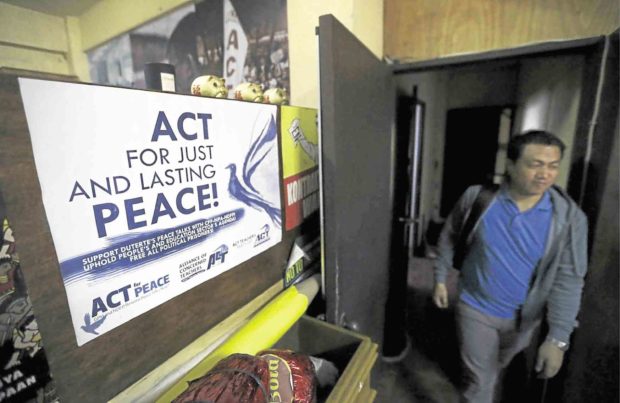
POLL DUTY The Alliance of Concerned Teachers says the Comelec decision allowing its members to serve on the board of election inspectors “exposes” the Tao Muna petition as “a mere ploy to discredit ACT and smear the integrity of teachers.” —INQUIRER FILE PHOTO
MANILA, Philippines — The Commission on Elections (Comelec) has denied the petition of the party-list group Tao Muna to bar members of the Alliance of Concerned Teachers (ACT) from serving on the board of election inspectors in May’s midterm elections.
In a resolution handed down on March 19 but announced only on Monday, the Comelec said it denied Tao Muna’s petition for “lack of basis in law and in fact.”
“The Comelec resolves to adopt the recommendation of the law department that public school teachers who are members of ACT may serve as electoral boards for the May 13 polls,” the poll body said.
Tao Muna had asked the Comelec to bar ACT members from serving as electoral inspectors as they might engage in partisan political activities.
It said ACT had its own party-list group running in the midterms and that electoral inspectors who were also ACT members could cause undue advantage and influence for their party-list organization.
ACT maintained that the teachers’ union is a separate entity from the party-list group.
The Comelec, quoting from the Election Service Reform Act (Esra), ruled that the current law specifically provides that preference be given to qualified, willing, and available public school teachers to serve as electoral inspectors.
“Membership in a party-list (group) is not a ground for disqualification of members of the electoral boards,” it said.
ACT welcomed the resolution, lauding the Comelec for enforcing Esra.
“The Comelec decision exposes in effect that [the] Tao Muna petition is a mere ploy to discredit ACT and smear the integrity of teachers,” said Joselyn Martinez, ACT national chair.
Track record
“Our track record as well as the law all point to one truth: teachers’ honor and integrity are unparalleled, hence our crucial role [in] every election,” Martinez added.
The union, composed of 180,000 public school teachers and employees, received a copy of the Comelec resolution on Sunday.
ACT is instrumental in the passage of Esra, which increased the honorariums of teachers serving on the board of election inspectors.
The law raised the honorarium of the board’s chair from P3,000 to P6,000 and those of members of the board from P3,000 to P5,000.
It also provided benefits for board members, including insurance, medical and legal assistance, and transportation allowance.